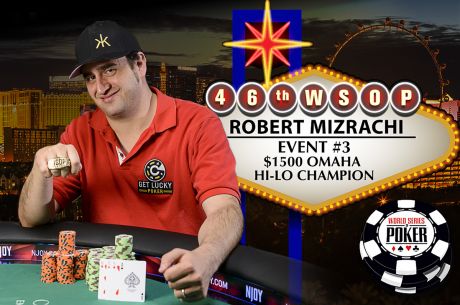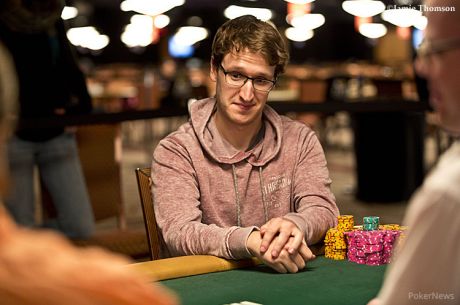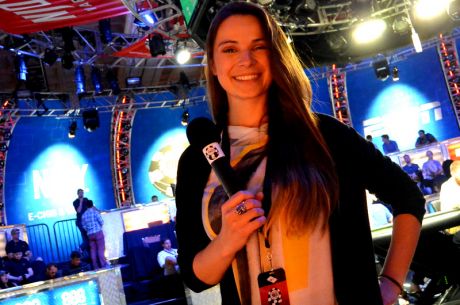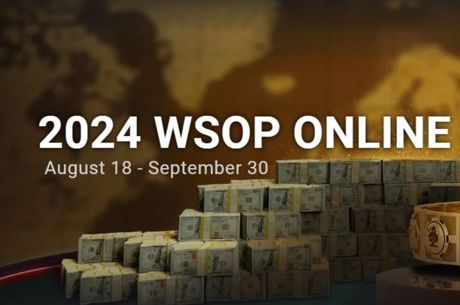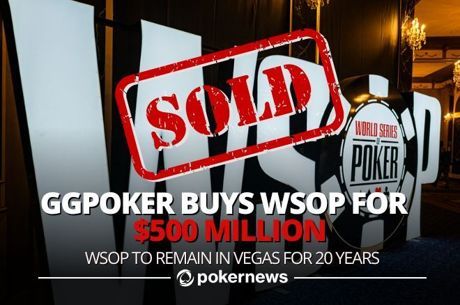WSOP Controversy: Players Take Issue With Less Than Colossal First-Place Prize
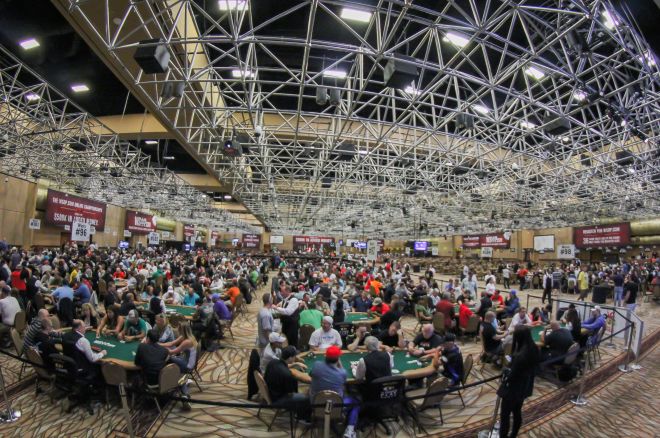
Make no mistake about it, The Colossus is huge. However, the first-place prize simply isn't. The World Series of Poker released the official entry and prize pool numbers for Event #5: The Colossus $565 No-Limit Hold'em on Day 2 shortly after play began Sunday.
With 22,374 official entrants, it is the biggest tournament in the history of live poker and the $11,187,000 prize pool created will pay a massive 2,241 spots. A min-cash is worth $1,096, and along with a shiny new WSOP bracelet, the winner's share will be $638,880 �� a number that is 5.7 percent of the prize pool and has sent dozens of pros flocking to Twitter to take issue with.
Really confused about @WSOP #Collossus only payin $600k 1st w 11mill in the pool- 5% of pool is a complete departure from industry stndrd :(
— Vanessa Rousso (@VanessaRousso)
Colossus paying 600k for first, and I actually thought the event was a huge success for a minute. What an epic fail by @WSOP
— Darryll Fish (@DarryllFish)
I'm not a huge advocate of flat payouts but it's absurd when the house makes more than 1st place money. #WellPlayed @wsop
— JC TRAN (@jctran23)
The biggest complaint appears to be the fact the WSOP took $65 in rake from each of the 22,374 entries, amounting to $1,454,310 and more than twice what the winner will take home.
Poker player Clayton Fletcher, who is among the thousands still in the event, said he thought it was an error when they announced the top prize.
"A lot of us were saying they made a mistake and announced second place instead," he told PokerNews. "That's what we all thought. I know they've never had a tournament this size before, but it's really disappointing, especially for people who have backers, sold off pieces, they're thinking if they win they'd be on easy street. It's just not enough to beat all those players and only get $638K."
Dan Heimiller, who won the biggest ever Seniors Championship at the 2014 WSOP and is still in The Colossus, appears to agree.
"It should be 15 percent for any tournament," he said. "This is ridiculous. There should be a minimum of 15 percent payout for first place for any tournament. All they did was extrapolate the Main Event payout structure, which is just idiotic. I mean, we came here to play a lottery, we want to get paid off like a lottery."
However, WSOP Vice President of Corporate Communications and Editor-in-Chief of WSOP.com Seth Palansky said they did more than simply extrapolate the Main Event payout structure, they relied on a time-tested and player-approved formula for coming up with The Colossus' payout structure.
"There is a 100-year-old mathematical formula called the Golden Ratio, where every place relates to the other spot," he explained. "It has been used at the WSOP since 2008 or 2009 after the tremendous growth in poker. In the Jamie Gold Main Event they never anticipated having that many players and didn't know how to figure it out and they did it on a napkin as they went along with no correlation to anything. Since then, we've really spent a lot of time and effort on this. Once we finalized it we got sign off from hundreds of poker players and got all the input from Players Advisory Council. They love this Golden Ratio and how every place has a correlation.
"This is the exact structure, we didn't gimmick it up or do anything for marketing or to make numbers look like they were up. We spit it in the computer and this is what the numbers should be according to this long-standing mathematical formula."
Palansky really doesn't understand what all the complaints are about, considering Colossus will pay triple the amount of people that have ever been paid in a WSOP event, and the winner still stands to earn 1,130 times the buy-in.
"When we awarded Martin Jacobson 1,000 times his buy-in last year (for the Main Event), we were criticized for being too top heavy," he said. "Now this winner is taking home 1,130 times his buy-in and it's not enough?
"I get it that no one could fathom a tournament like this with 22,000 players. They know in simple terms, I play a $1,500 event, if there's 2,000 players, I'll get $600,000 or whatever. If this was a $1,500 buy-in the winner would have got $2 million, that's what the same payout structure would have delivered. At this buy-in level with this payout structure, it's a matter of what goes up must come down. When you have more players to pay out the percentage going to each has to go down because you now have to spread it out over a wider margin. It's pretty simple, but unless someone has seen all the places and how it all relates, I guess they're going to react without paying attention to the principles of mathematics."
For Fletcher, the WSOP's explanation sounds more like spin than anything else.
"This whole idea that they're breaking the record for the highest ROI in a tournament is total media PR," he said "That's not cool. They're always going to find a way to do what they want and spin it the way they want. The players around me are not happy."
Jeff Fielder, a player with half a dozen WSOP cashes on his r��sum�� to date, appears to agree.
"I think it's absurd (first place) is not a minimum of 10 percent of the prize pool if not more," he said.
But Palansky stands by the formula.
"I don't know anywhere else in the world where you can do something and four days later make 1,130 times your investment," he said. "If that's not good enough, tell us what you want. We're here to do what the players want. They told us what they wanted at the Main Event when we made it a $10 million guarantee again this year and we have surveys that show they wanted a flatter payout. Now we didn't flatten this payout, we went back to the normalized payout and I don't see why there should be an issue.
"If you make (first place) 10 percent you're gutting it for everyone else. You're giving the winner $1.2 million and you're taking it from all the other places. If people want to gut everything to make a bigger first-place prize then that's the exact opposite of the message they were sending us three months ago. Whatever they want us to do, we'll do. We did what they wanted and that's not good enough, so I don't know what's good enough."
In fact, Palansky says he believes this payout structure, and the event itself, is about as good for the game of poker as it gets.
"We probably brought in 7,500 new players that have never played in a World Series of Poker event before," he said. "We set the record almost tripling the largest poker event ever held and put $11 million in a prize pool for a $500 event at the start of the series, I think that's pretty good. I think people should take a step back, do a little analysis, take a look at the numbers and if they want to come up with a suggestion on how it should be done, we're all ears."
He just simply can't understand on what foundation all the criticism is built.
"Anyone who doesn't want to accept 1,130 times their investment, I guess they can go put their money in an interest bearing CD and good luck," Palansky said.
Want to stay atop all the latest from the 2015 WSOP? If so, make sure to get PokerNews updates on your social media outlets. Follow us on Twitter and find us on both Facebook and Google+!

